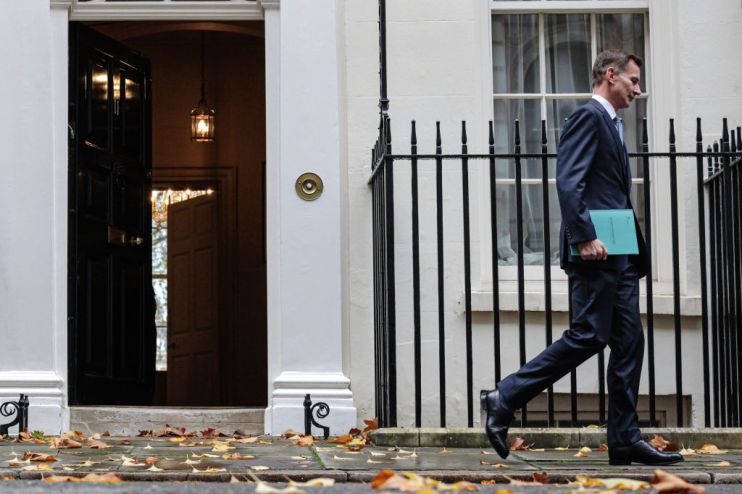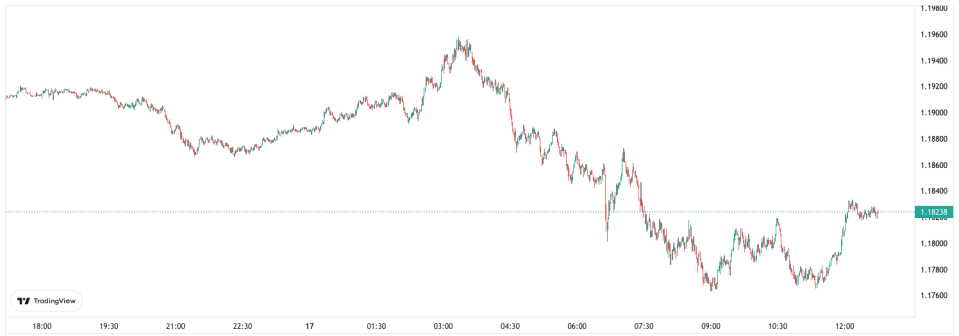Market reaction to autumn statement a far cry from Truss and Kwarteng’s mini-budget

Financial markets largely glossed over chancellor Jeremy Hunt’s £55bn worth of tax hikes and spending cuts today, a marked change from them spitting out his predecessor Kwasi Kwarteng’s mini-budget.
London’s FTSE 100 closed broadly flat, edging 0.06 per cent lower, while the domestically-focused mid-cap FTSE 250 index bumped 0.05 per cent high.
Most of the selling was concentrated on the pound, which weakened nearly one per cent against the US dollar.
UK borrowing costs nudged higher, but remain below the more than 20-year high they hit after Kwarteng and former prime minister Liz Truss unleashed £45bn of unfunded tax cuts on 23 September.
Awful growth, a swelling debt interest bill sparked by a global interest rate surge and soaring inflation have whacked the UK’s public finances, forcing Hunt into sweeping tax hikes and spending cuts.
Pound/US dollar exchange rate

A historic living standards squeeze of seven per cent, forecast by the Office for Budget Responsibility, will drive a year long recession, partly weakening market sentiment toward the pound.
But, analysts said bets on the US Federal Reserve sticking to its aggressive interest rate hike cycle strengthened the dollar, putting downward pressure on the pound.
“While sterling traded slightly weaker in the immediate aftermath [of the autumn statement], much of that was based on the broad strength of the USD, so it wasn’t necessarily sterling specific,” Ian Tew, head of G10 FX spot trading at Barclays, said.
“A lot of negativity is known and already priced in and fiscal prudence and stability has been re-instated,” he added.
Investors were seemingly happy to lend the government the OBR’s forecasted £170bn and £140bn this year and next respectively.
Normally, investors demand a higher premium to lend governments money, either via higher debt rates or weaker currencies.
Hunt tweaked his fiscal targets to getting debt as a share of the economy and capping borrowing to fund day-to-day spending at three per cent in five years, helping keep tax hikes and spending cuts to a minimum.
The OBR said the chancellor would meet these with billions pounds of headroom, shoring up investors’ confidence in the UK’s financial credibility.
Truss and Kwarteng did not commission the OBR to publish assessments alongside their mini-budget, partly fuelling the market upheaval.
Bank of England governor Andrew Bailey yesterday said Truss and Kwarteng’s tax cuts had “damaged” the UK’s global reputation.